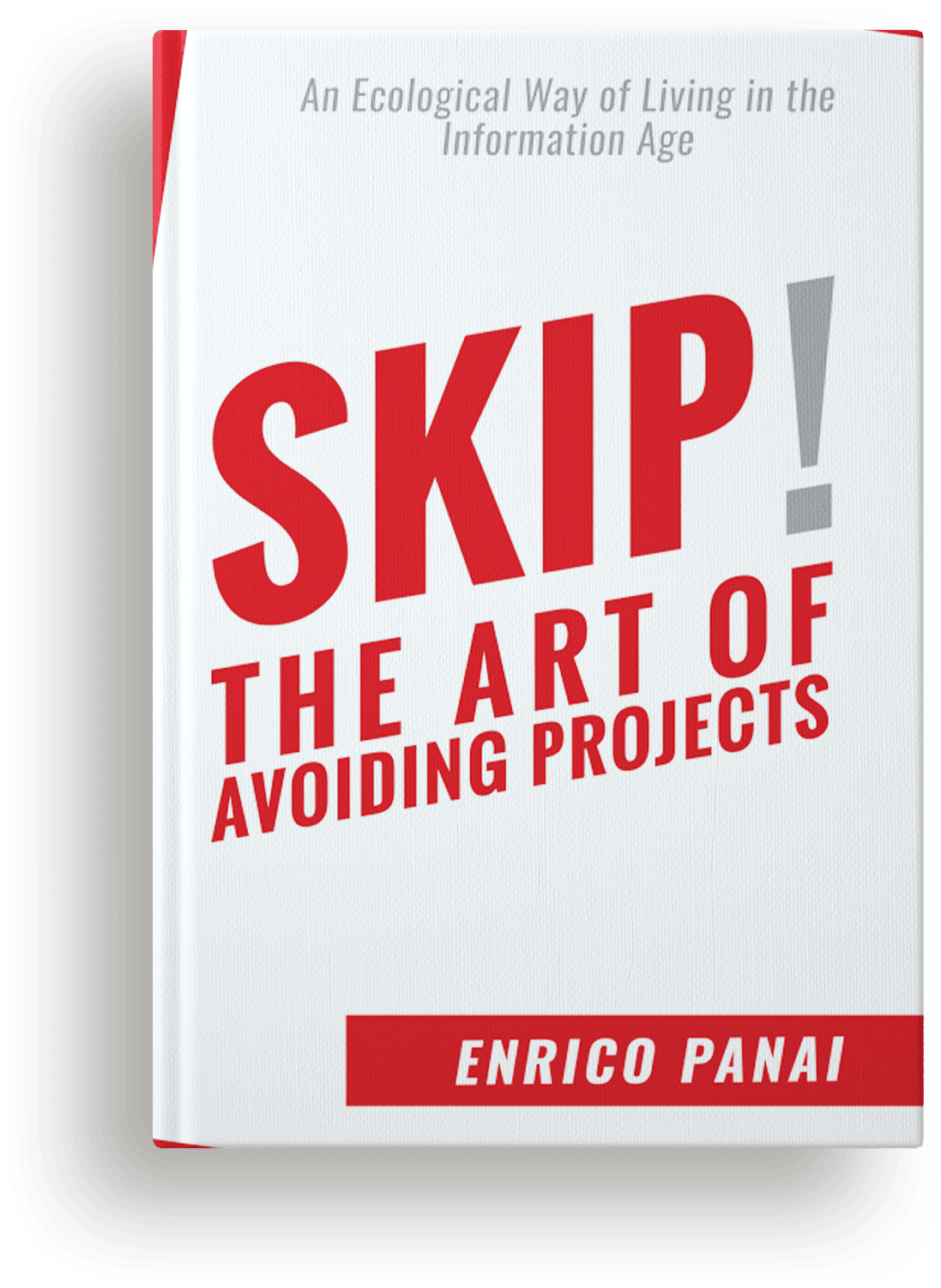
Enrico Panaï
Skip! The Art of Avoiding Projects
An Ecological Way of Living in the Information Age
We have all perceived, at least once, that something wasn’t right at work. In order to correct this situation, therefore, we made a project. In fact, every time we would like to change something we make a project. But, unbelievable as it may seem, even though they appear to be formally successful, projects do not always solve problems. Actually, they frequently add new ones. Consequently, the feeling that something is not working recurs and we start to make projects again, thus initiating a vicious circle. In other words, we make lots of projects but they usually change very little. But the digital revolution is forcing us to make a profound and lasting change. Today we can no longer afford to waste time and resources unreasonably. We must avoid getting our organizations bogged down in ineffective projects and, instead, learn to distinguish useful actions from useless ones if we are to find room for and encourage creativity.
In SKIP! The Art of Avoiding Projects, Enrico Panai tackles the problem at the root, laying the ground for an innovative ecology of the project. Thanks to a multidisciplinary approach, using scientific discoveries and many examples drawn from everyday life, the author proposes SKIP! as the watchword for avoiding useless projects. Before it is too late.
- Language: English, French, Italian
- Summary
We have all perceived, at least once, that something wasn’t right at work. In order to correct this situation, therefore, we made a project. In fact, every time we would like to change something we make a project. But, unbelievable as it may seem, even though they appear to be formally successful, projects do not always solve problems. Actually, they frequently add new ones. Consequently, the feeling that something is not working recurs and we start to make projects again, thus initiating a vicious circle. In other words, we make lots of projects but they usually change very little. But the digital revolution is forcing us to make a profound and lasting change. Today we can no longer afford to waste time and resources unreasonably. We must avoid getting our organizations bogged down in ineffective projects and, instead, learn to distinguish useful actions from useless ones if we are to find room for and encourage creativity.
In SKIP! The Art of Avoiding Projects, Enrico Panai tackles the problem at the root, laying the ground for an innovative ecology of the project. Thanks to a multidisciplinary approach, using scientific discoveries and many examples drawn from everyday life, the author proposes SKIP! as the watchword for avoiding useless projects. Before it is too late.
| ISBN | 9781718909120 |
| Publication date | 2018 |
| Pages | 288 |